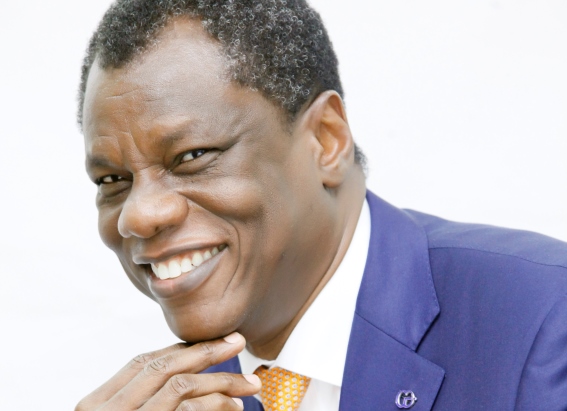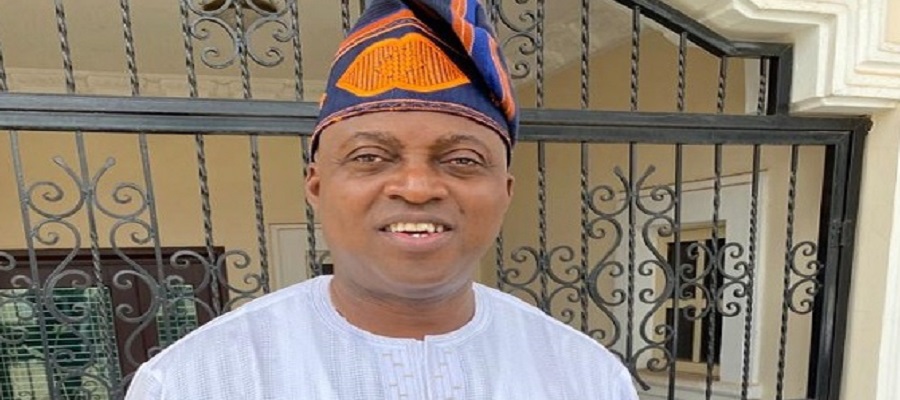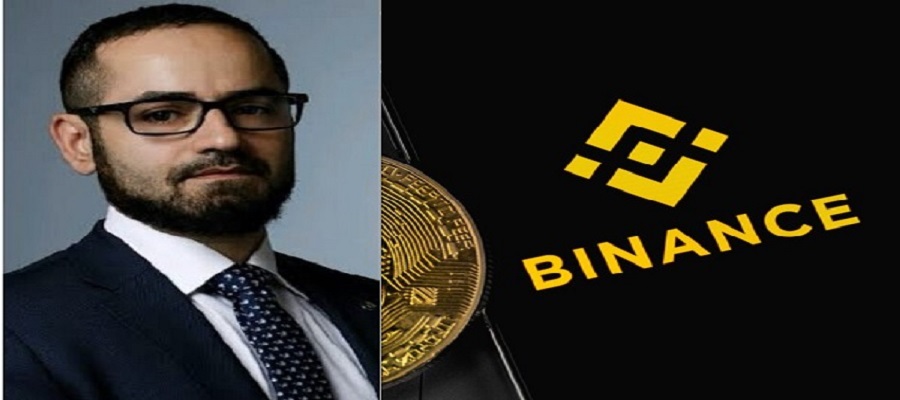News
A Dirge to the Nigerian Research and Education Network

By Austin Okere
There is no cheer about the recent pronouncements from the hierarchy in the education sector and the long-term impact on our youth.
“Nigerian government reverses resumption of schools, says no WAEC exam for now.” was the screaming headline in the Premium Times on July 10, 2020.

The Minister of State for Education, Chukwuemeka Nwajiuba, announced during a media briefing on July 6 that the West African Examination Council (WAEC) examination will now take place between August 4 and September 5. In swift contradiction, the education minister, Adamu Adamu, speaking to State House correspondents at the end of the Federal Executive Council (FEC) meeting presided by President Muhammadu Buhari, said Nigerian schools will not reopen any time soon “until it is safe to do so because of the COVID-19 pandemic”.
The situation at the tertiary level is not any better, as the Academic Staff Union of Universities (ASUU) through an interview of their President, Prof. Biodun Ogunyemi with the Punch Newspaper on June 16, 2020 has declared that E-Learning cannot work in Nigeria. It seems that Prof. Ogunyemi totally overlooked Private schools in his pronouncement; many of whom have completed the syllabus for the current term through online classes at home.
The Ausso Leadership Academy (#ALA), foremost institution providing mentorship to Business Leaders and Entrepreneurs to scale their businesses geometrically has transitioned her models and frameworks online and continues to impact companies with game changing ideas to thrive now and beyond.
Far afield, both Harvard and Princeton have announced plans to bring back students for the fall semester, albeit, all course instruction will be delivered online, including for students living on campus. Coursera is partnered with 192 institutions from 43 countries and offering more than 3,200 online courses in 13 languages.
The irony is that Nigerian Universities would have had six years of leapfrog experience in online learning if we had taken the opportunity presented by the NgREN and consolidated on the budding shoots. But like most opportunities that come our way, we display gross unpreparedness and unprecedented nonchalance in the face of opportunity cost to our future generations.
The COVID-19 pandemic is real, and we have to take all necessary precautions and follow social distancing and other protocols advised by the Nigeran Centre for Disease Control (NCDC).
But not knowing how long it will last, we cannot put our lives on permanent pause. We have to adjust to the new normal and get on with it. Companies like Zoom and Amazon have understood this and have ended up net beneficiaries.
I wrote this article four years ago when it seemed that the NgREN will become an abandoned project, and another of the many white elephant projects dotting our landscape.
What can we learn from this in order to forestall a reoccurrence?
One of the proudest moments in the history of the Nigerian Education sector was the successful implementation and commissioning of the Nigerian Research and Education Network (NgREN).
Being the first of its kind in Sub-Saharan Africa, the pomp and pageantry that accompanied the unveiling event seemed justified and earned. The network which boasted 465mbps of internet capacity represented 20 times the average connectivity capacity leveraged by the universities.
This was a project conceptualized, deployed and managed by Nigerians under a consortium of indigenous companies including CWG Plc, Airtel, Medalion, Resourcery, and Phase 3; finally, a project for us by us.
The idea of the NgREN was conceptualized as far back as 2004. After a long period of dormancy, it was revived under the auspices of the Nigerian Universities Commission (NUC) and the Committee of Vice Chancellors (CVC) in January 2010.
The objective was for a Research and Education Network that will connect all Higher Institutions of Learning together, and to the global Research and Education Network. The achievement made Nigeria the first in sub-Saharan Africa to join the league of countries in Europe and America that had functional Online Research & Education Networks.
A catalytic fund was secured from the World Bank as grant, and counterpart funding by the Federal Government of Nigeria in mid-2012 for the first phase of the project, while the procurement cycle was concluded in February 2013.
The first phase of the project which connected 27 Universities, the CVC and the NUC, with over one million users, delivered 155mbps capacity to each university and connected to the Multiprotocol Layered Switch core network, which had a 10Gbps capacity, as well as 465mbps internet capacity, providing high definition telepresence capabilities for real-time collaboration, voice over internet protocol, shared access to research content and joint experimentation projects.
The second phase was planned to cover five more clusters of about 100 institutions and five million users. Subsequent phases were to cover all higher education institutes numbering over 600.
The network was to be connected to the London Open Exchange via an international private leased circuit, and offer additional services such as web hosting, unified communication, digital library collection, video bridging and archiving services.
This indeed would have afforded Nigerian Universities the opportunity to take a quantum leap in online learning, and significantly improve their low ranking in quality and reach of teaching and research output, and thereby bringing them closer to their global peers.
But alas, this was not to be; as the much heralded NgREN has been shut down for over eleven months due to non-payment of the segment bandwidth fees. The consortium of local providers however, left all the equipment intact in good faith, awaiting the provision of bandwidth to restore services.
Apart from the immense benefit in value and global trends, the economies of scale of the project saved the universities immense costs, as embarking individually on such a project would be grossly sub-optimal and prohibitively expensive.
Nigeria has a long history of poor project execution and abandonment. According to journalists Chuka Uroko and Joshua Bassey, in the past couple of years alone, it is estimated that over 11,886 federal government projects with an estimated value of N7.7trillion have been abandoned.
Should we start singing a funeral dirge to a well conceptualized and implemented system as the NgREN, with all its benefits after spending so much tax payers’ money on it? By this action of omission or commission we would have inadvertently reversed the solid gains made in the broadband transformation agenda and shut our youth from critical online learning and the emerging digital economy.
The importance of broadband to online learning, the digital economy and social development cannot be overemphasized. This is underscored by the open letter from the Global Broadband Commission to the G20 leaders’ meeting as far back as 2012, wherein they enumerated the importance of broadband in moving the global economy onto a higher growth trajectory, and in generating sustainable, social and economic growth of all nations, especially literacy development to address inequity and deliver inclusive growth for all.
In particular, they argued that broadband enabled technologies are simulating fresh innovation and inspiring a new generation of digital entrepreneurs. The digital era will produce a whole new range of digital careers and industries of the future. Broadband reduces barriers to entry, offering opportunities for small and medium enterprises to challenge existing hierarchies, to innovate, compete and grow.
The targets of the NgREN were to make broadband universal among our youth in higher institutions and their surrounding communities, make it affordable, connect homes and businesses, and get more people online. In essence, it would have enabled our institutions to have the same opportunities to learning as those in the developed world, and impacted their communities as is currently witnessed in places such as Silicon Valley in America.
With such nonchalance to educational development in our country, it is no surprise that none of our local universities is included in the ranking of the world’s best 1,000. Tertiary education in Nigeria has suffered from long periods of neglect to the extent that parents would rather take their Children to countries like Ghana, UK, US and Canada.
It is estimated that Nigerians studying in British and American Universities have spent over N137billion on tuition and living expenses in the last two academic sessions. If the over 71,000 Nigerian students who pay tuition fees in Ghana were to contribute the N160billion they spend annually, they would account for about 40 per cent of the Nigerian education budget. According to Mr. Ian Stewart, a member of the British Parliament, there are about 30,000 Nigerian students in the UK alone.
In the wake of the expressed resolve of the Muhammadu Buhari led federal government to make public institutions more accountable and responsive to the needs of the society, it is expedient to immediately revive the NgREN project, and in the medium to long term properly situate it, including exploring Private, Public Partnership (PPP) to ensure that this laudable project does not die an avoidable death. We should as a nation learn to stop being wasteful in the face of acute scarcity and make the most of our scare resources.
Austin Okere is the Founder of CWG Plc, the largest security in the technology sector of the Nigerian Stock Exchange, and Entrepreneur-in-Residence at CBS, New York. Austin also serves on the Advisory Board of the Global Business School Network, and on the World Economic Forum Global Agenda Council on Innovation and Intrapreneurship. Austin now runs the Ausso Leadership Academy focused on Business and Entrepreneurial Mentorship
News
Raji Takes over as NBTI Boss, Pledges to Drive Technological Growth

Dr. Kazeem Kolawole Raji, director general, National Board for Technology Incubation (NBTI), has promised to engage in the empowerment of youths in digital and technological innovations for the nation’s economic growth.

Raji, who stated this when he officially took over the mantle of leadership from immediate past director general, in Abuja, explained that the Board remained an economic base in which the Gross Domestic Product, GDP, of the country could be grown.
He said, “Presently, what we are doing is electromechanical. And I’m bringing new initiatives on emerging technologies. Because when you talk about technology today, you talk about AI, that’s artificial intelligence. You talk about nanotechnology. You talk about blockchain technology. And if you look at what is happening today in Nigeria, you see that a lot of our youths, if you tap their brains, they can become useful to this country and to themselves, rather than engaging in nefarious activities.
“And most importantly, we are a knowledge-based economy where the frontier, top-level elites of most Nigerian youth can be put into place and help drive the economic base of Nigeria, grow our economy, and increase our GDP.”
The director general pointed out that the Board had offices in all 36 states of the Federation and 15 extensions in some states and would ensure grassroots technological advancement.
“First and foremost, let me thank His Excellency President Bola Ahmed Tinubu GCFR for appointing me as the new Director General and CEO of the National Board for Technology Incubation, Abuja. Presently, we have offices in 36 states of the Federation and 15 extensions in other states. That means if you add 36 plus 15, you’d have around 51 centers.”
“These centers are meant to advance technological innovation and skillsets for our youth to enjoy. If you look at it presently, MBTI is tasked with establishing and managing technology incubation centers in Nigeria. And the skillset of most of our youth in Nigeria today shows that many come up with a lot of innovations.”
“Just like very recently, last month in January, in Nigeria, an incubatee of MBTI, Mr. AbdulLateef Olaosebikan, won $1 million in a keenly contested competition in Abu Dhabi. He called that prize the Zaihe Sustainable Prize Award, and he won it in the food category.”
“He competed with 5,980 other applicants from all over the world. That is to show you the kind of skillset in Nigerian youth. And that’s part of the reason why, when Mr. President said he’s going to draw water from the dry well, it means technology. Because the only way you can draw water from a dry well is through technology. And that technology is what I’m here to drive,” he stressed.
On the proper packaging of products, Raji stated that a memorandum of understanding had already been signed with the Kwara State Government in that regard.
“Just last week, I was in Kwara State to sign a memorandum of understanding with the Kwara State government with our incubatees and post-incubatees. One of the things I discovered there is about packaging and how we can package our products so that they can rival international products.”
“Presently, we are engaging with NAFDAC and the Standard Organization of Nigeria to achieve that kind of product quality. Because part of the mandate of MBTI is to commercialize the research products coming out of our incubatees and the National Board for Technology Incubation.”
“So, I can assure you, with the caliber of people at the Standard Organization of Nigeria and NAFDAC, partnering with them, by next week or so, we’ll be engaging with them officially on how we can work together to help our entrepreneurs package their products well in view of international standards.”
“You don’t have to go somewhere else to look for any product. If you see the kind of products coming out of Kwara State, you will marvel. Just very recently, someone came up with the idea of a trytractor.”
“And the trytractor, if you see the kind of output coming from this trytractor, if you help this person commercialize this product, imagine Nigeria as an agrarian nation and how we can make use of this. We won’t need to go outside and import tractors again if we develop our own local entrepreneurs. That is the reason why I’ve always been advocating, even while I was Executive Director at Nigerian Communications Satellite, that Executive Orders 003 and 005 on ICT local content should become an Act of Parliament.”
“It’s not just an Executive Order alone. They need to become an Act of Parliament so that if they become law, Nigerians will embrace our own local technology. We won’t have to go outside to rely on foreign technology.”
“And if you are working on your own local technology, you will be assured that capital flight will become a thing of the past, and we can shore up our foreign reserves and address the fluctuation of the Naira and Exchange Rates today in Nigeria,” Raji further explained.
Earlier, Dr. Chukwu, the immediate past director general of NBTI, said deliberate efforts were made for grassroots development.
“NBTI is an agency that spans the whole nation, and there is a grassroots project that, at the end of the day, if we put in our best, people will be able to benefit from the dividend of democracy. Thank you very much.”
“I am here this morning to start the handing over process, and usually, in the handing over, I’m expected to have inputs from departments, units, zonal offices, and centers to ensure that the handing-over note is comprehensive enough for the incoming DG, CEO.”
“So, on my part, I’ve been able to do a template that will guide the departments, the heads of units, zonal directors, and center managers to submit their inputs. That was what even delayed me a bit. Though I have it in soft copy, for the departments and others, I will give them a hard copy here.”
“Let me also use this opportunity to welcome my brother to the National Board for Technology Incubation. National Board for Technology Incubation is an agency that cuts across the whole nation, and there is a grassroots project that, at the end of the day, if we are able to put in our best, our people will also be able to benefit from the dividend of democracy. Thank you very much,” Chukwu said.
News
WiSolar Offers Base Pay for Nigerian Partners

WiSolar, African provider of solar-as-a-service solutions, has announced a new programme for its Partner Merchants.

The company has implemented a base pay structure for Partner Merchants and collaborated with Ecobank Nigeria to ensure seamless and fast mass disbursements.
This programme, according to the business, is part of WiSolar’s continued efforts to strengthen its merchant network, which drives solar adoption throughout Nigeria.
WiSolar will use Ecobank Nigeria’s digital payment infrastructure to provide rapid and reliable payouts to its increasing network of Partner Merchants.
The arrangement avoids payment delays and gives businesses rapid access to their earnings, according to WiSolar.
It added: “By implementing a base pay, the company ensures that Partner Merchants receive a stable income, complementing their commission-based earnings from solar product sales and installation.”
Preye Irims, service architecture and partner enablement at WiSolar, explained further: “Our Partner Merchants are at the heart of our mission to make clean, affordable solar power accessible to more Nigerians.
“Introducing a base pay is a way of recognizing their efforts and providing financial stability as they help accelerate the transition to solar energy. With Ecobank Nigeria’s support, we are ensuring that payments are processed efficiently and securely.”
News
Binance Chief Insists Some FG Officials, Reps Demand $150m Bribe

Tigran Gambaryan, top official of Binance, at the weekend, maintained his stance on the bribery allegations against some Nigerian government officials and House of Representatives members.

Tigran Gambaryan
Gambaryan insisted Nigerian officials demanded bribes from him despite the denial of the Federal Government.
Recall that Gambaryan, who is Binance’s head of financial crime compliance, was detained in Nigeria from February to October 2024.
Nigerian government said his arrest was part of a broader investigation into alleged money laundering and economic destabilisation attributed to Binance’s activities in Nigeria.
On Friday, while recounting his initial experience on the issue on Twitter, Gambaryan accused some Nigerian lawmakers of demanding substantial bribes in cryptocurrency.
He specifically accused three lawmakers of soliciting a $150 million bribe from him, naming Philip Agbese, Ginger Onwusibe and Peter Akpanke as the three federal legislators who demanded the huge bribe from him to allegedly forestall his arrest and prosecution.
He further alleged that Nuhu Ribadu, National Security Adviser, sought significant payouts from Binance for his political ambition.
But in a swift response, Mohammed Idris, minister of Information and National Orientation, dismissed Gambaryan’s allegations as “outrageous” and “defamatory”.
Idris explained that the Nigerian government had rejected a $5 million offer from Binance intended to secure Gambaryan’s release, opting instead for a more favourable settlement with the US government.
He said Gambaryan’s claims lacked credibility and appeared to be an attempt to discredit Nigerian officials.
But Gambaryan in his latest post on the development on Saturday on his X, said the Federal Government used him as leverage to negotiate a beneficial settlement with the US government.
He wrote, “I was invited by the Nigerian FIU to a meeting in January. Last time I checked, they are part of the Nigerian government. House members also invited us to the meeting. Last time I checked, the legislative branch is also part of the Nigerian government.
“You said the second part was part of a probe? Lol. So when you invited us to a friendly meeting, you even lied about that. I was in a safe house for a month, watching TV, while you were trying to use me as leverage. You then panicked and knowingly charged me with blatantly false accusations.
“So I was released on humanitarian grounds? At least you’re finally admitting the need to release me. Last time you posted, you claimed my health was fine and that there was nothing wrong with me”.
The crypto expert further stated, “You investigated? Yet you didn’t take a statement from me? A person with direct knowledge. What a joke.
“You dragged my name through the mud for the past year with zero evidence against me, nearly killed me, and caused trauma to my family. And now you have the nerve to talk about defamation?
“I’ll put my credibility on the line anytime. In court? You mean like last time, when your attorneys didn’t even show up to the human rights suit in Abuja?
“Get your facts straight. I am done with this foolishness. I said my part. I’ll be off Twitter now since it’s pointless to argue with evil.”
While insisting that his claim was factual despite the denials, Gambaryan added, “What I shared was factual, based on my personal experiences and conversations with those who have direct knowledge of the events I discussed; information that was shared with both Nigerian and US law enforcement.
“So please, allow me to leave this behind and find peace”.
The Binance executive said it was the responsibility of law enforcement agents in both Nigeria and the US to see the investigation into the matter through.
He said he is no longer in law enforcement, adding that the responsibility of seeing this through to a logical conclusion now falls on those still serving in the United States and Nigeria.
He added, “Many requested that I stay on and provide further commentary on the issues I posted about yesterday (Friday). Here’s the hard truth: what I shared was meant to fill in the gaps left by Wired and NPR’s reporting.
“The reality is that last year was incredibly painful for me and my family. I dedicated my life to fighting crime as a Special Agent with the United States Department of the Treasury and as a compliance professional. It was an honour to serve my country and it was a blessing that they came to my rescue and mobilised the full force of the US Government when I was in need.
“Being dragged through court on “outrageous, baseless, and trumped-up charges”, he posited, “didn’t just hurt me but also brought immense pain to my family.
“I don’t want to see my kids cry because I’m not around. I don’t want to see videos of my 75-year-old mother on television in tears. I don’t want to see my wife crying on TV. I want to put this nightmare behind me and move on.”

 E-Financial1 day ago
E-Financial1 day agoSERAP Gives CBN 48-Hour Ultimatum to Withdraw ATM Fee Hike

 E-Financial1 day ago
E-Financial1 day agoFG Seeks Fresh $300m Loan from World Bank for Health Security

 General News1 day ago
General News1 day agoFG Drops Merger of NCAA, NAMA

 News1 day ago
News1 day agoBinance Chief Insists Some FG Officials, Reps Demand $150m Bribe

 News1 day ago
News1 day agoinDrive Unveils Cashless Bank Transfer Feature in Nigeria

 E-Financial1 day ago
E-Financial1 day agoCardinalStone Acquires Radix Pension Managers

 Telecom1 day ago
Telecom1 day agoNITDA Pledges to Foster Innovation with Cloud Infrastructure and AI Applications

 Telecom11 hours ago
Telecom11 hours agoToriola, MTN Nigeria CEO again Defends Tariff Hikes amidst Backlash






















